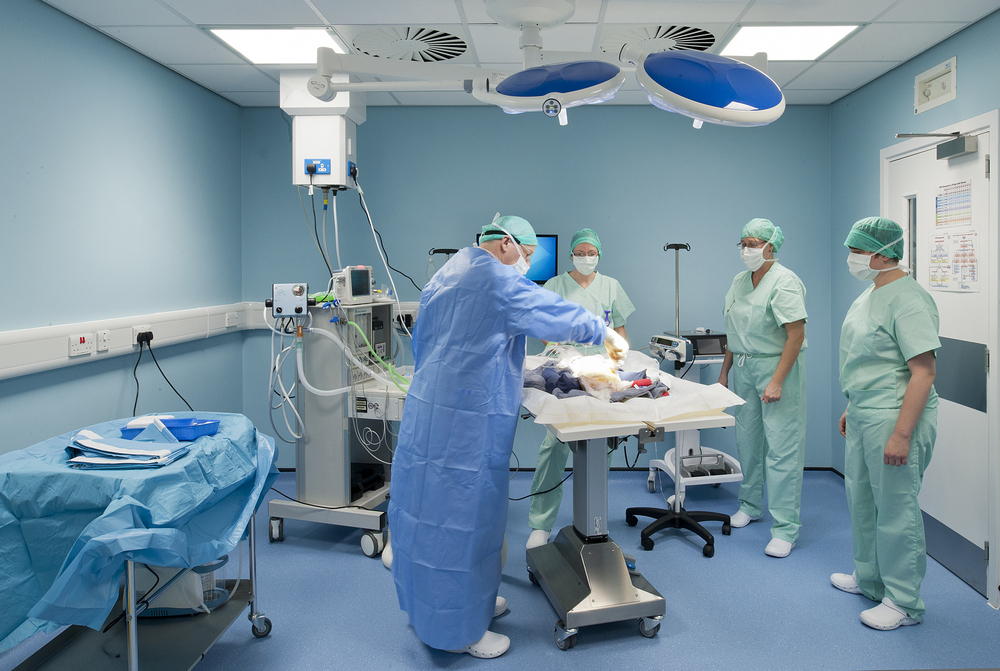
John Williams, Laura Playforth and Mary Fraser among seven vets and three vet nurses to win a place at RCVS innovation symposium
At Vets Now, staff are constantly encouraged to ask themselves “how can we make things better?”.
Indeed innovation – along with caring, releasing potential and taking responsibility – is one of the values that influences and supports everyone who chooses to work for the company.
Now three Vets Now vets have been commended for living those values by being selected by the RCVS to attend its inaugural innovation symposium.
Earlier this year the college asked vets and vet nurses to send in examples of something innovative they had done that had led to improved methods of working.
Those shortlisted would then be invited to lead discussions – at the first ever RCVS innovation symposium – on how the profession could embrace their work.
Vets Now’s John Williams, Laura Playforth and Mary Fraser were among the seven vets chosen after impressing judges with their entries.

John Williams gives Congress lecture preview
John, national surgical lead at Vets Now and a soft tissue specialist in its emergency and specialty hospital in Manchester, was chosen for his work implementing a structured and standardised patient handover procedure.
He said: “Patient handovers are potential ‘high-risk’ situations that may contribute to adverse events, if there’s a breakdown in communication between staff. My aim was to develop a form for every case that’s hospitalised to minimise that risk.
“The forms have been well accepted by staff and have ensured those directly involved with the care of patients know and understand the treatment plan and the nursing care required for that patient.
“I’m pleased the RCVS has recognised this by inviting me to its first innovation symposium.”
Laura, whose entry was on the use of clinical checklists in a first-opinion emergency and critical care setting, also said she was delighted to be recognised by the RCVS and emphasised her entry was very much a team effort.
She said: “I truly believe that the greatest improvements we can make in healthcare is doing what we know, but better. At Vets Now we have a no-blame culture. We know people make mistakes and part of our learning from them is putting checklists in place to prevent them in future.
“As head of veterinary standards, improving clinical and professional practice is the mainstay of my role and something I’m passionate about. The development and application of innovation is also something I’m studying as part of my masters (MSc) in advancing healthcare practice.
“Anyone within a healthcare setting can be a leader and an innovator, small improvements which occur frequently often have the biggest impact on patient outcome and experience.”

Find out more about Mary's study
The other Vets Now vet selected to attend the event was clinical development manager Mary Fraser for developing a training programme for veterinary staff and students working with visually impaired owners.
Mary said: “‘I wanted to highlight that with support it is possible to carry out original research in practice, which can make a difference to how veterinary staff work – improving compliance and support for owners.
“I was determined that the work would not be forgotten in a journal but should impact on veterinary staff training. I’m delighted that RCVS has recognised this as an innovation and look forward to meeting everyone in London.”
The RCVS innovation symposium will take place at The Shard in London on 20 September. It is described as an “invitation-only event that will bring together thought leaders from the vet professions and those involved in innovative veterinary technologies or business models”.
One of the judges, Anthony Roberts, who is director of leadership and innovation at the college, said: “This event will provide a forum to discuss the opportunities and threats presented by innovation in the veterinary sector.
“It will also provide a launch pad for an ambitious programme to put veterinary professionals at the centre of innovation.”
He added: “We want UK veterinary professionals to be at the forefront of innovation in order to treat their patients more effectively, but we also recognise the issues that new technologies can present from a professional and regulatory perspective.”

